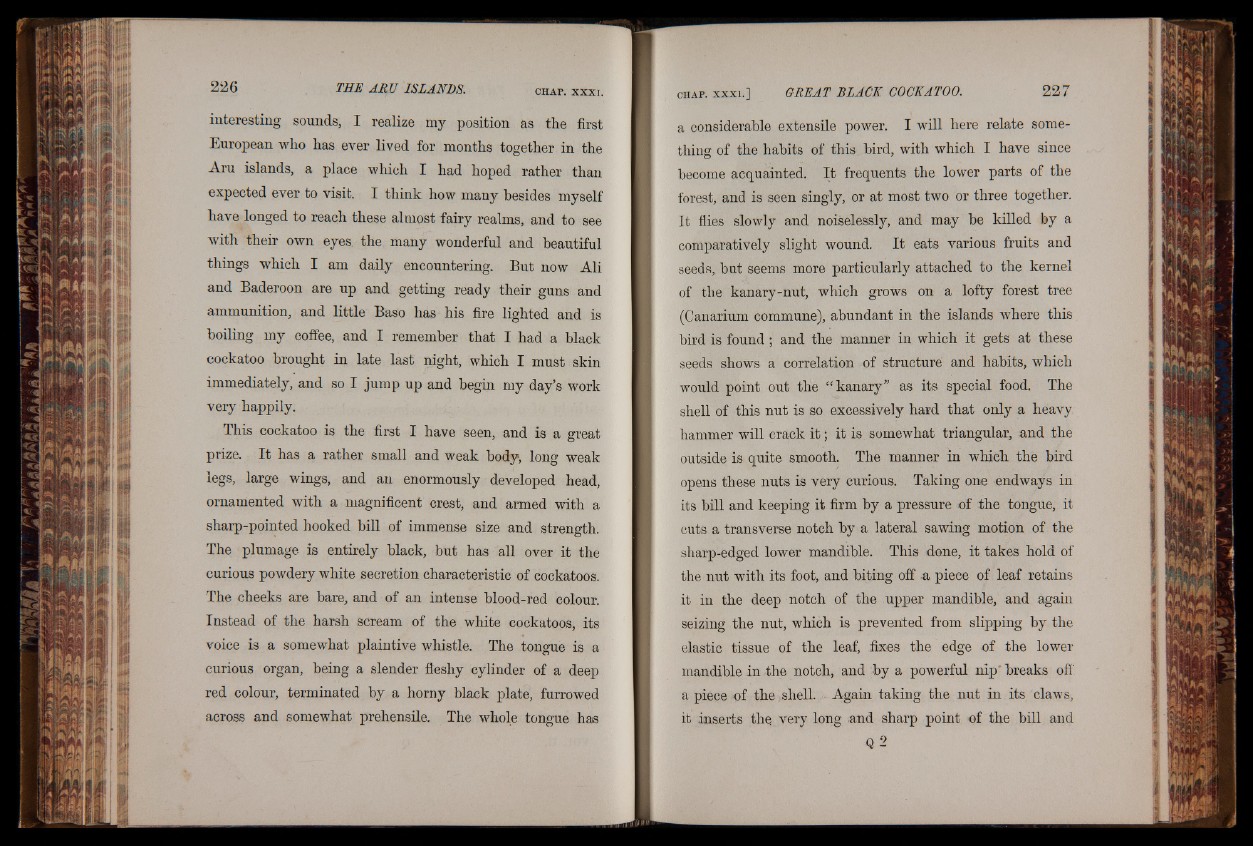
interesting sounds, I realize my position as the first
European who has ever lived for months together in the
Aru islands, a place which I had hoped rather than
expected ever to visit. I think how many besides myself
have longed to reach these almost fairy realms, and to see
with their own eyes, the many wonderful and beautiful
things which I am daily encountering. But now Ali
and Baderoon are up and getting ready their guns and
ammunition, and little Baso has his fire lighted and is
boiling my coffee, and I remember that I had a black
cockatoo brought in late last night, which I must skin
immediately, and so I jump up and begin my day’s work
very happily.
This cockatoo is the first I have seen, and is a great
prize. It has a rather small and weak body», long weak
legs, large wings, and an enormously developed head,
ornamented with a magnificent crest, and armed with a
sharp-pointed hooked bill of immense size and strength.
The plumage is entirely black, but has all over it the
curious powdery white secretion characteristic of cockatoos.
The cheeks are bare, and of an intense blood-red colour.
Instead of the harsh scream of the white cockatoos, its
voice is a somewhat plaintive whistle. The tongue is a
curious organ, being a slender fleshy cylinder of a deep
red colour, terminated by a horny black plate, furrowed
across and somewhat prehensile. The whole tongue has
a considerable extensile power. I will here relate something
of the habits of this bird, with which I have since
become acquainted. It frequents the lower parts of the
forest, and is seen singly, or at most two or three together.
It flies slowly and noiselessly, and may be killed by a
comparatively slight wound. It eats various fruits and
seeds, but seems more particularly attached to the kernel
of the kanary-nut, which grows on a lofty forest tree
(Canarium commune), abundant in the islands where this
bird is found ; and the manner in which it gets at these
seeds shows a correlation of structure and habits, which
would point out the “ kanary” as its special food. The
shell of this nut is so excessively hard that only a heavy
hammer will crack i t ; it is somewhat triangular, and the
outside is quite smooth. The manner in which the bird
opens these nuts is very curious. Taking one endways in
its bill and keeping it firm by a pressure of the tongue, it
cuts a transverse notch by a lateral sawing motion of the
sharp-edged lower mandible. This done, it takes hold of
the nut with its foot, and biting off a piece of leaf retains
it in the deep notch of the upper mandible, and again
seizing the nut, which is prevented from slipping by the
elastic tissue of the leaf, fixes the edge of the lower
mandible in the notch, and by a powerful nip' breaks off
a piece of the shell. Again taking the nut in its claws,
it inserts the very long and sharp point of the bill and